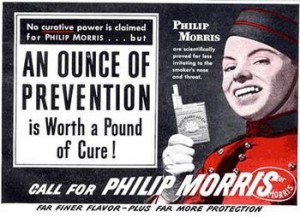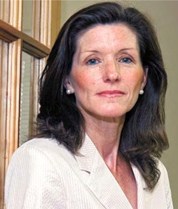 Yet another telecom industry-backed front group claiming to represent the interests of small businesses managed to get its very-predictable opposition to Net Neutrality published in this morning’s Washington Post. That is a small achievement considering the newspaper’s editorial page that increasingly promotes Big Telecom’s agenda.
Yet another telecom industry-backed front group claiming to represent the interests of small businesses managed to get its very-predictable opposition to Net Neutrality published in this morning’s Washington Post. That is a small achievement considering the newspaper’s editorial page that increasingly promotes Big Telecom’s agenda.
This time it was the AT&T-sponsored “Small Business & Entrepreneurship Council,” which the Post claims is a “nonpartisan advocacy and research organization dedicated to protecting small business and promoting entrepreneurship.” Hardly. More on that later.
Karen Kerrigan is president, chief executive — and head regurgitator of the same false talking points AT&T and others have used to oppose Net Neutrality from the start:
The Federal Communications Commission is poised to impose new rules on the Internet using an outdated regulatory regime originally designed for the monopoly telephone system of the 1930s.
[…]Essentially, government regulations and bureaucrats would now direct how traffic over the broadband Internet flows rather than privately managed networks — they would also dictate what type of speeds, services and prices consumers should have (one size fits all) rather than let the market and innovators determine those things.
[…]Net neutrality rules would give the FCC new powers to micromanage the operations and pricing and service levels of the privately owned and financed broadband networks that are the physical heart of the Internet. This is a strategy for chasing away the billions of dollars that broadband network operators (principally the telecom and cable companies) plan to invest in broadband infrastructure and new technology.
Of course, the “outdated regulatory regime” we’ve heard about from AT&T repeatedly is not coming along for the ride in broadband reform… only the authority to provide an effective checks-and-balances system for the marketplace duopoly most Americans find when shopping for Internet access. Nothing about Net Neutrality dictates speeds and prices consumers pay for broadband. Considering the United States continues to lose ground in broadband rankings, all of the innovation the SBE claims would be lost was never here to lose. It has been in South Korea, Japan, and increasingly eastern Europe.
Net Neutrality does not micromanage operations, pricing, or service levels. In fact, it is the most simple, easy to understand government proposal around. It states simply that broadband providers will treat all websites equally, will not run toll booths to extract extortion payments from content producers to guarantee their material won’t be artificially slowed down or blocked, and guarantees no provider censorship. The industry’s claims that Net Neutrality will harm investment is phoney-baloney from the phone and cable companies. They’ve earned fat profits in a Net Neutral-world for a decade. But now decreasing interest in landlines and cable TV service means they’re trolling for more revenue, and they think they’ve found an untapped goldmine setting up toll booths on the Internet.
In Kerrigan’s world view, not allowing AT&T and Verizon to install paywalls, speed throttles, and establish paid special relationships with big businesses harms small businesses. To prove her case, Kerrigan quotes Evelyn Nicely, president of Springfield-based Nicely Done Kitchens:
“Small businesses such as ours depend on every tool we can use to succeed. Undoubtedly, our strongest ally in terms of client communication, marketing, and product specifications comes from the use of broadband and the Internet. It has given us the ability to compete with anyone, even the larger and better-funded players in our industry, through our Web site and its innovative tools, which enable us to effectively market our services to the public.”
Of course, nothing in Nicely’s comments opposes Net Neutrality. In fact, such important broadband reform preserves the strongest ally her business has — a free and open Internet that lets her compete with far larger players on an equal, level playing field. The biggest threat to that level playing field is not passing Net Neutrality. It would allow companies like Lowes or Home Depot to become paid, preferred content partners with broadband providers who could direct Ms. Nicely’s potential customers not to her website, but to them. Large companies who can afford the price will find their ads splashed on broadband provider-home page portals that deliver customized web searches, preferred partner online ads and error redirection pages that can send customers who may mistype Nicely’s business name to her direct competitors.
How Nicely could ultimately manage to keep her business open in a broadband world where special favors can be bought and delivered should be a major concern for her and every other small business.

Kerrigan's Small Business Survival Committee was dedicated to serving the interests of Big Tobacco companies like Philip Morris.
It’s no concern of the SBE, whose corporate backers keep this front group up and running. But then it’s not the friend of small business it claims to be, and it’s hardly a “council.”
Before discovering the money that can be made parroting talking points for big cable and phone companies, Kerrigan was shilling for Big Tobacco, getting substantial contributions for her Small Business Survival Committee (a/k/a Small Business Survival Foundation) which received more than $100k from Philip Morris, hardly a small business at the time.
The SBE knows how to attract media attention through catnip-like “scorecards” that rank elected officials based on just how friendly they are to SBE’s benefactors. The group and its leaders are darlings of conservative political media. Their views see Communism anywhere individuals collaborate on their own in a way that costs big business profits. Its chief economist even saw Borg-socialism in the concept of “open source” software:
“In the software universe, something similar to the Borg from ‘Star Trek’ seems to be at work,” declared SBE’s Raymond J. Keating. “It’s called open source software distributed under an agreement known as General Public License (GPL). If you recall, the Borg are ‘Star Trek’ bad guys. They’re basically evil bureaucrats with skin problems, who assimilate every species they come in contact with throughout the universe. Societies are wiped out. Individual thought and creativity are extinguished as individuals are absorbed into a collective. Something similar could be said of GPL-based open source software.”
An impartial, fair observer of telecommunications policy for small business the SBE is not.
Unfortunately, the Washington Post, whose parent company owns cable operator Cable One, has little incentive to see through the SBE’s haze of telecom industry-inspired talking points.


 Subscribe
Subscribe

The Washington Post hearts astroturf